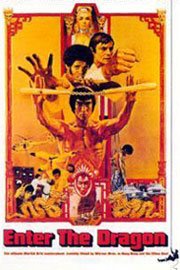Unfortunately, I didn't have the fortune of getting a little somethin' from the IRS this year. In fact, I owed the IRS quite a bit of money this year. You can almost say that the IRS loaned me money and this came due on April 15.
For those that do have a little refund or have some extra cash to save... don't just blow it on that plasma TV your neighbor just bought or a down payment for the new set of wheels. The following is a checklist in the order of how you should utilize that money:
1. Emergency fund
2. Maximize the match from your 401K
3. Pay credit card debt
4. Max out Roth IRA
5. Max out 401K
6. Invest wisely in non-retirement accounts...
Notes to above:
1. Have an emergency fund that covers about 6 months of all of your expenses. This is so you don't lose that new house you recently bought or have to start bumming rides from your friends if you have an unexpected lay-off, or medical bill, or (fill in the blank). This should be invested in short-term vehicles, preferably, high yield savings, money markets, or short-term CDs for easy accessibility. Next...
2. Contribute enough to your employer-sponsored retirement plan to get any matching contributions from your employer. This is free money! Don't pass this up! Matching equals 100% returns... you will never get any better return than this. The matching rate can vary anywhere from 1% to 6% of your contributions (if you get any higher, don't lose that job)
3. Pay off credit card debt. The higher the interest, the earlier that debt should be paid off. Credit card interest generally tends to be higher than 15% and higher if your credit score is worse. If you can, transfer it to a new card with a promotional 0% balance transfer
4. Contribute to a Roth IRA (most folks, especially younger ones, benefit from a Roth over a traditional IRA) and max this out. 2006 limits are $4000 for age < 50.
NEXT (if you've gotten this far, you're doing better than the average person)
5. Return to that 401K and max this out. $15000 limit for 2006.
6. Invest to your heart's content. Diversify broadly and be tax-savvy. This usually means no load mutual funds, index funds, low-turnover (<20%), domestic and international equities, tax-exempt municipals. My favorite is Vanguard but there are several other good companies including Fidelity, TRowe Price, Dodge and Cox, Dimensional Fund Advisers, TIAA-CREF... if you insist on paying a load, then American Funds are managed well. Each have their own positives/negatives.
One of the toughest questions is where does real-estate fall into this mix of things. My bias is you shouldn't be considering real-estate if you still have credit card debt although this is a bit controversial. I just wouldn't be comfortable adding a huge mortgage if I knew I still had a lot of consumer debt. Oh... and if you are somewhere around step 5 or 6 and STILL want that TV... you probably deserve it; just make sure it doesn't send you back to step 3.






